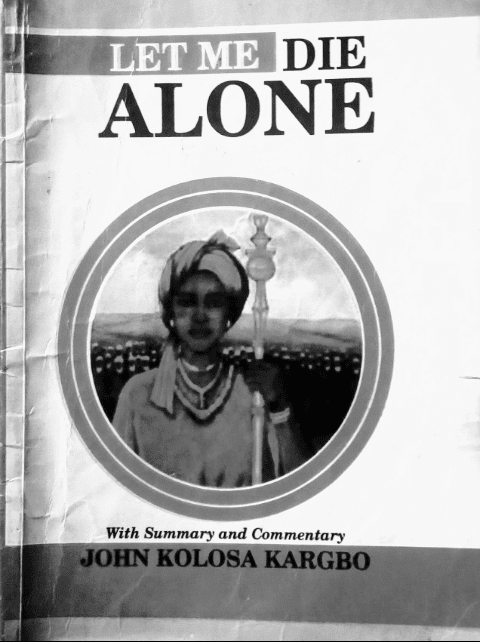Examine the change in the mood of “A Government Driver On His Retirement“
In the poem, “A Government Driver on His Retirement“, the poet uses a change in mood to facilitate the tragedy that rises upon the resolution of the dramatic treatment of the retiree’s life. The addressee dies in an ironic turn of his joy.
Onu although uses the poem to berate the apparent idea of drink and drive among Nigerian drivers and every insensate driver, it is not without signification that he raises the concern of the reader on the question of fatalism. With the contrast, the poet leaves the reader in a state of wonderment as to the means by which man can preserve the one joie de vivre he attains as a compensation for his existentialist struggles.
To begin with, the poem is one that celebrates the achievement of a dutiful servant to fatherland. And for its wider scope, it is evident that the poem reiterates the idea of a ceremonious marking of noteworthy events that spell a positive end in man’s endeavour in life. As such, the “many years” for which man is “on wheels” expresses the condition of life as a journey. This is what the author underpins in its literal and metaphorical “undented thirty-five years of service to fatherland” for which the driver holds a celebration.
Moving forward, the poet, in the second stanza of the poem, highlights a question of freedom in the line, “Today, he’ll go home a freeman”. Freeman here suggests two critical ideas: one, the end of man’s struggles and servitude; two, the fact that man earnestly desires freedom from his existential engagements. However, it is joy to whomever has a good cause to retire from the active service by which he has defined his life as having been lives for the service to humanity. Again, this could be literal or symbolic of the end, death. And at this stage of the poem, the author raises the reader’s curiosity without making them lose a grip on the conviviality that pervades this retirement.
Further, the driver ecstatically invites his friend in “celebrating the celebration of his retirement”. Again, the poet here aggravates the question of life’s essence. He reiterates the fact of camaraderie as an element of man’s joy over his achievement; how that in the ideal world, happiness is contagious. This is what he highlights in the line, “joy till no more joy to joy”. Joy and achievement makes a man the hero of his own life. This is one of the thoughts that run through the core of the driver’s happiness as a microcosm of the human life which is a merger of sorrow and joy. But here, it is the latter which “makes” the retiree “a king”.
Finally, the tension simmers with the destination the driver reaches. And we see how the whole poem becomes both a celebration and a criticism of life! The battle “with the bottle booze” which suggests alcoholism is also symbolic of man’s means of death, as a wise man rightly puts it: “a man’s character is his fate”. At this point, the poem strikes the truth of man’s death, in special cases, being a result of his actions and inactions. We see in this pitiable condition that truly, life can be at the mercy of pleasures! Suddenly, the driver arrives “Home to rest in peace”. He dies! The irony is both an effective technique for the poem’s poetic richness and the poet’s criticism of life.
In conclusion, the change in mood of the poem is from joy to melancholy. And this is enforced by the poet’s attitude towards man’s action and/or inaction at being the captain of his own life’s boat. A sound and successful writer’s grasp of life’s absurdity.
Read Also:
- Poem: A GOVERNMENT DRIVER ON HIS RETIREMENT by Chibuike Onu
- Content Analysis of Chibuike Onu’s A GOVERNMENT DRIVER ON HIS RETIREMENT
- Themes in Chibuike Onu’s A GOVERNMENT DRIVER ON HIS RETIREMENT
 WHATSAPP: Click HERE to join the new Literature PADI WhatsApp group to receive latest updates on your phone and for further literary discussions!
WHATSAPP: Click HERE to join the new Literature PADI WhatsApp group to receive latest updates on your phone and for further literary discussions!









